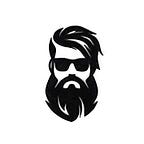A one-year learning plan for web development in Python can help you gain the skills and knowledge needed to build web applications. Here’s a step-by-step plan to guide you through your journey:
Month 1–2: Basics of Python
- Learn the fundamentals of Python, including syntax, data types, variables, and basic operations.
- Practice writing simple Python programs to get comfortable with the language.
- Explore basic concepts like functions, loops, and conditional statements.
Month 3–4: HTML, CSS, and JavaScript
- Start with HTML and learn how to structure web pages.
- Move on to CSS to style your web pages and make them visually appealing.
- Begin learning JavaScript for adding interactivity to your websites.
Month 5–6: Flask (Python Web Framework)
- Get familiar with Flask, a lightweight Python web framework.
- Learn how to set up a Flask project and create routes and views.
- Build simple web applications using Flask.
Month 7–8: Databases and SQLAlchemy
- Explore databases, SQL, and relational database management systems (e.g., SQLite, PostgreSQL, MySQL).
- Learn SQLAlchemy to interact with databases from your Flask application.
- Create a database-backed web application with Flask and SQLAlchemy.
Month 9–10: Front-End Framework (e.g., React or Vue.js)
- Choose a front-end JavaScript framework (React or Vue.js) and learn its basics.
- Understand how to build dynamic and responsive user interfaces.
- Integrate the front-end framework with your Flask back-end.
Month 11–12: Deployment and Advanced Topics
- Learn about deployment options, including platforms like Heroku or AWS.
- Explore security best practices for web development.
- Study advanced topics such as API development, authentication, and testing.
Ongoing: Practice and Projects
- Throughout the year, work on small web development projects to apply what you’ve learned.
- Create a portfolio website to showcase your projects and skills.
- Join online coding communities or forums to ask questions and learn from others.
Additional Tips:
- Read web development blogs, watch tutorials, and stay updated with the latest web technologies.
- Collaborate with others on open-source projects or contribute to existing ones.
- Attend local or virtual meetups and conferences related to web development.
Remember that web development is a continuously evolving field, so staying curious and eager to learn is essential. Adjust this plan based on your progress and interests, and don’t forget to explore Python libraries and tools specific to web development as you go along. Good luck with your one-year web development journey!
